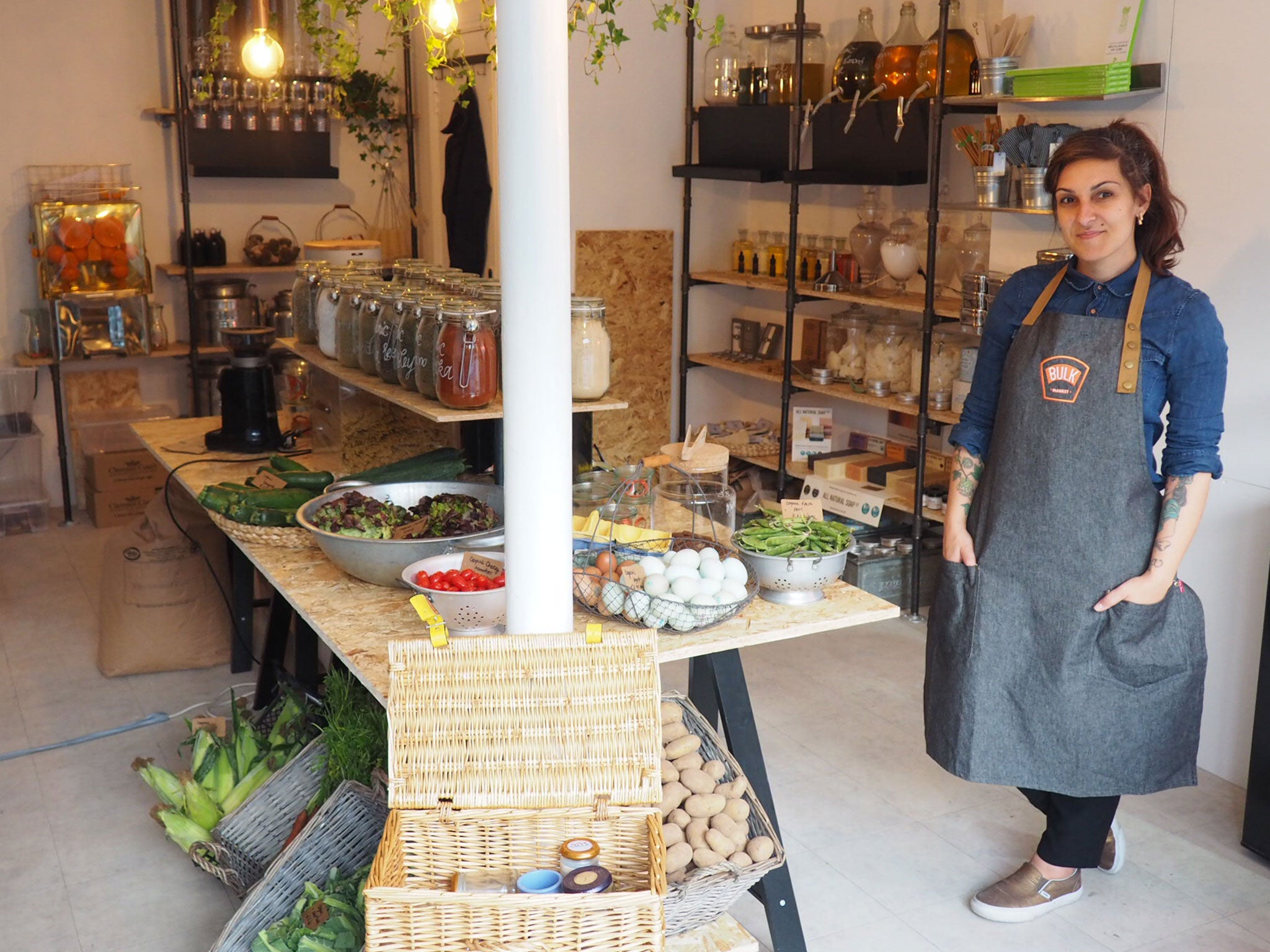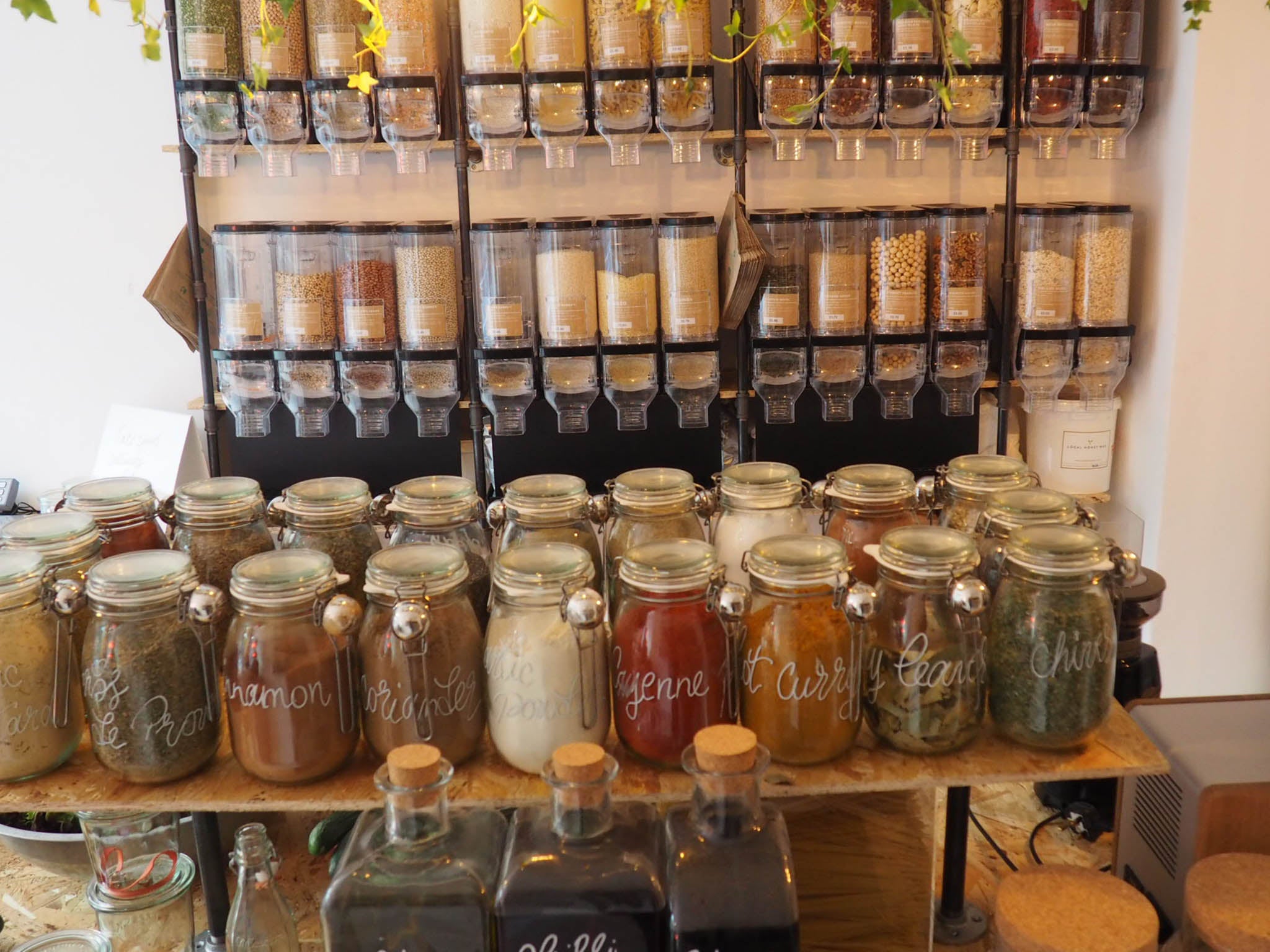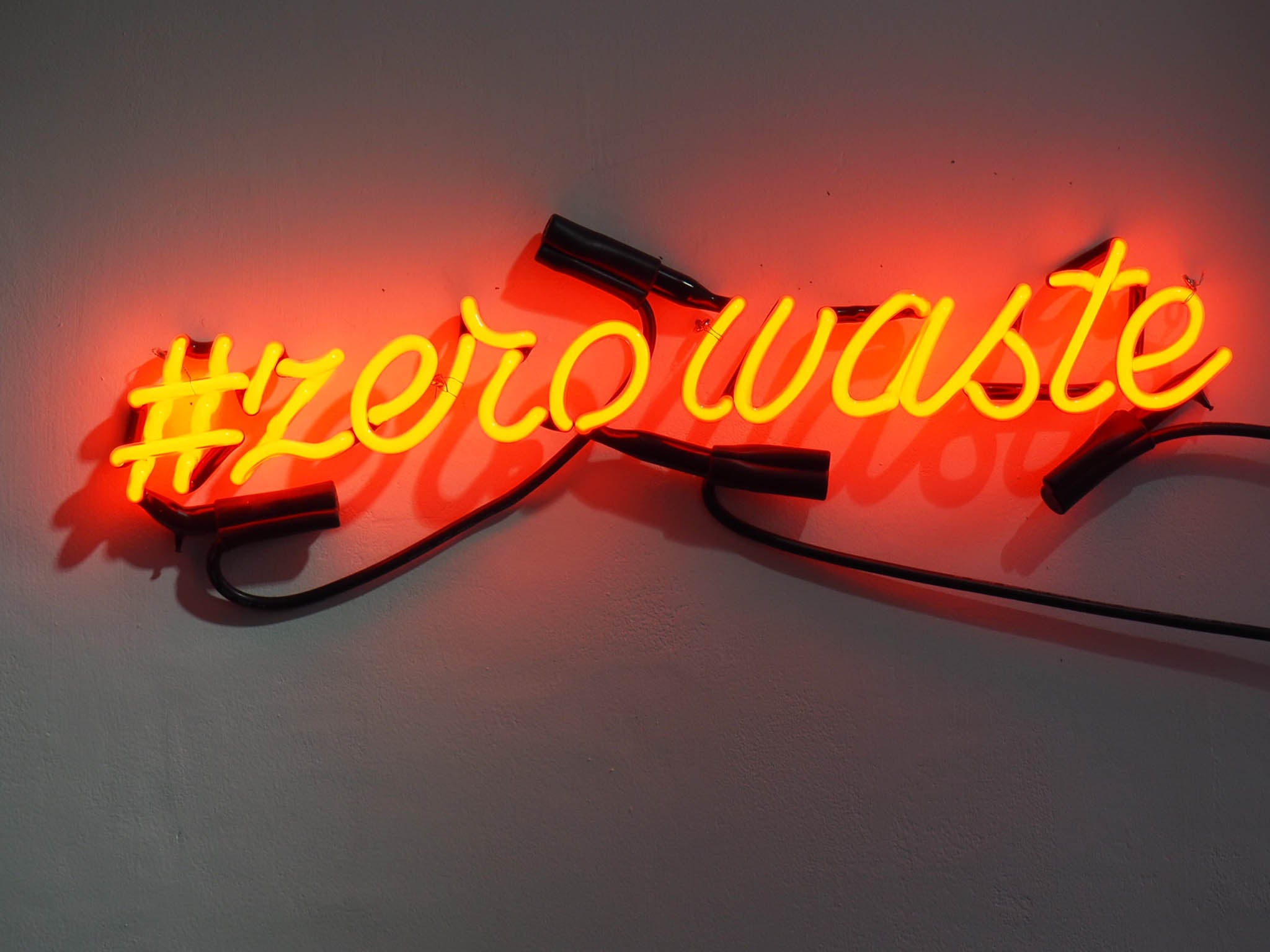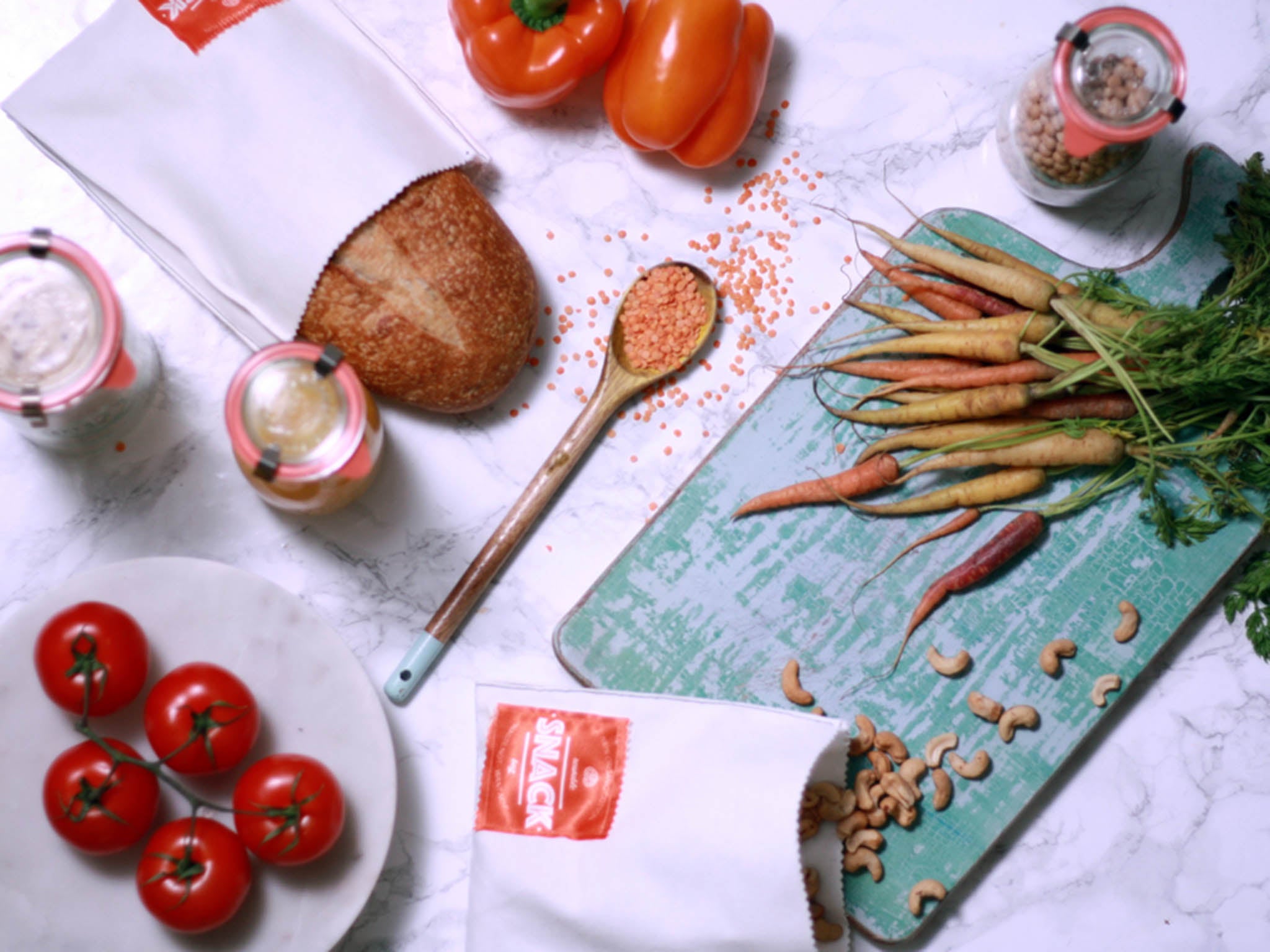Zero waste: Inside London's first plastic-free shop
As we become more aware of the impact of plastic, Emma Henderson visits London's first market that's free of the clear stuff, and asks if this is the future of shopping?

It’s the dream: a plastic free supermarket where half my shopping isn’t coated in the clear, cold, hard stuff – plastic. Well for me it is anyway.
I’ve been on a mission to use as few plastic bags as possible for years: I ridiculously carry far too much shopping home in my arms, walk back to the office from the shop to get my reusable bag when I’ve forgotten it and refuse to buy ingredients I need just because they come in plastic.
Checking every piece of the absurd amount of plastic our food comes in before committing the blasphemous act of throwing it in bin is now a ritual. When something takes 450 years to decompose, it should be for more of us.
The average family throws away 11 meals a month, equivalent to just under £60. Across UK households, hospitality and the retail industry, the country throws away 10 million tonnes of food annually, where 61 per cent could have been saved if it had been managed better, according to Waste and Resources Action and Programme’s (Wrap) latest figures.
The borough of Hackney in the east of London currently only recycles 25.3 per cent of its household waste, which against Bexely who recycles 54 per cent of its waste, could be doing a lot more. In south Hackney, street lamps are adorned with large green signs encouraging its inhabitants to recycle their waste with the chance of winning £100. It’s clearly high on the council’s agenda.
But Ingrid Caldironi has taken matters into her own hands by opening the city’s first plastic free shop. Bulk Market stocks more than 300 items in the pop-up shop and it’s not just food. Alongside dried goods there's bamboo toothbrushes, paper-wrapped toilet roll and even dog food.

“The idea came from my own needs. I wanted to support the right businesses and be able to shop without creating any waste, but there wasn't anything like that in London,” says Caldironi.
“I always thought waste was a natural output of modern living, but it turns out to be poor design. Things aren't designed in a circular economy mind-set yet,” she adds.
The products are brandless, instead of hiding behind the familiar brand names and packaging we all know and recognise in the supermarkets. Those in Bulk Market are sourced locally from other social enterprises, co-operatives, community farms or made on site. Cakes come from Luminary Bakery which provides training for vulnerable women, and other, while much of the other produce comes from local projects, including Dusty Knuckle, Growing Communities and Capital Growth. While I was there, someone even came in specifically after the bread.

"People will know how the food is made and where, all the way from farm to table, and ultimately, to the bin,” says Caldironi.
Inside the shop, lined up in glass kilner style jars are spices, while one wall is adorned with dispensers full of pasta, lentils, chickpeas and other dried goods – things that Caldironi says are almost impossible to get hold of plastic-free. There are no plastic bags – obviously – so take you own jars to top up, or use compostable bags and weigh out what you want. It’s a war-time shopping experience, minus the ration cards, which elderly local people are enjoying for the nostalgia, says Caldironi.
But some people have compared it to hipster the Cereal Killer Cafe that first opened its doors in Hackney in 2014, selling bowls of cereals from round £3. Although Caldironi says it's about the environment, not money, and left a good job to pursue this.

After working in retail marketing, Caldironi decided that neither the corporate world nor policy makers were doing enough to tackle the waste problem, where she felt people are becoming increasingly disconnected from their food. “The same applies to the environment and the amount of disposable packaging we toss into landfills every year”, she says.
This site is a pop-up which has been crowdfunded, but the plan is to move to a permanent location, which will host an on-site beehive, a commercial grade composting machine and a community area for workshops and talks to educate people on what else they can do to reduce their household waste, which Caldironi is an expert at, as at her home she doesn’t have any waste bins anymore and doesn’t send anything to landfill. “We do have a recycling bin for cardboard, paper and glass though, but it takes months to fill up. We also compost all the food scraps and use it to grow herbs and ornamental plants on our balcony,” she says.
Caldironi’s ethos doesn’t just stop at the shop shelves though. At the new site, the materials from the refurbishment won’t be sent to landfill, but will be reused and some of the “new” items will be cast-offs from the Royal Opera House, giving their waste a new lease of life as a shop fitting.
Larger supermarkets receive much of the blame for food waste, but according to Wrap, only 1 per cent of food waste in the UK – equivalent of 200,000 tonnes – comes from supermarkets. In 2016, Sainsburys committed to spending £1m to cut food waste with its “Waste less, Save more” campaign, aiming to reduce food waste by half. While Morrisons and Waitrose have both committed to selling wonky or so-called “misshapen” vegetables - at a discounted price - that previously didn’t make the grade to be sold, although it does come in plastic packaging. Waitrose’s latest commitment is to make the plastic window on sandwich packets easier to peel off in order to recycle.
In July, Marks and Spencer reduced the size of some of their plastic packaging of their best-selling products, including crisps and popcorn. Named “Project Thin Air”, the packaging uses 20 per cent less plastic by using thinner polymer packets.
Although some supermarkets are beginning to make changes, their sheer numbers of stores across the country means there’s still a long way to go in reducing food waste and plastic packaging. Unfortunately, a single one-stop plastic-free shop in the east of London is not accessible for everyone, but it’s an insight that one day this is how a weekly food shop will be, across the country, just like it used to be.
Join our commenting forum
Join thought-provoking conversations, follow other Independent readers and see their replies
Comments